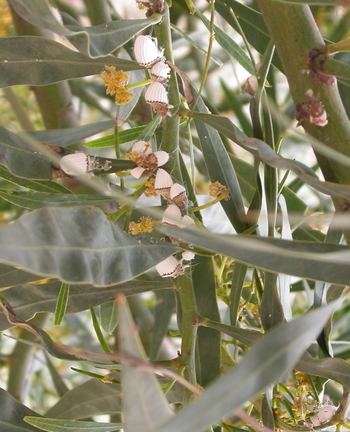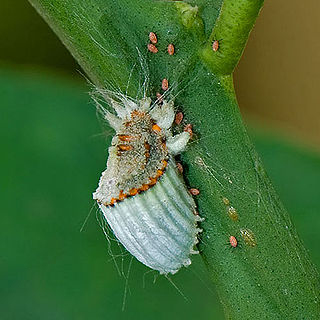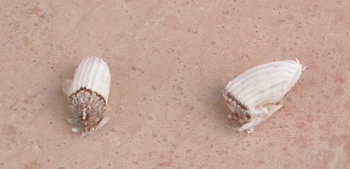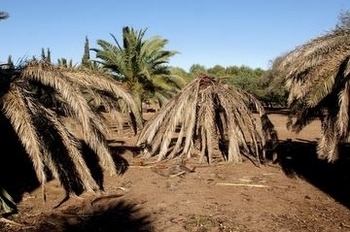- Region
- Vega baja
- Marina Alta
- Marina Baixa
- Alicante
- Baix Vinalopo
- Alto & Mitja Vinalopo
-
ALL TOWNS
- ALICANTE TOWNS
- Albatera
- Alfaz Del Pi
- Alicante City
- Alcoy
- Almoradi
- Benitatxell
- Bigastro
- Benferri
- Benidorm
- Calosa de Segura
- Calpe
- Catral
- Costa Blanca
- Cox
- Daya Vieja
- Denia
- Elche
- Elda
- Granja de Rocamora
- Guardamar del Segura
- Jacarilla
- Los Montesinos
- Orihuela
- Pedreguer
- Pilar de Horadada
- Playa Flamenca
- Quesada
- Rafal
- Redovan
- Rojales
- San Isidro
- Torrevieja
- Comunidad Valenciana
Spanish Gardening pests and problems, The fluted scale insect.
Gardening Costa Cálida, the scale insect

Scale insects feed by sucking sap from the leaves and stems of their host plants and heavy infestations result in the plant showing poor growth. Some species of scale insect excrete a sugary liquid known ashoneydew which makes the foliage sticky. A black fungus known as sooty mould often develops on the honeydew, especially under damp conditions, which are exactly the conditions we currently have now after the recent rains.
 Most scale insects feed on the underside of leaves and they have a habit of flicking their excreta away from the leaf surface so that stickiness and sooty mould develops on the upper surface of leaves below where the insects are actually feeding.
Most scale insects feed on the underside of leaves and they have a habit of flicking their excreta away from the leaf surface so that stickiness and sooty mould develops on the upper surface of leaves below where the insects are actually feeding.
There are many types of scale insects, including the better known cochineal, famed for the problems it causes on cacti and the red colouring produced by processing it, but the most common variety here is the fluted or cotton scale insect. The insects have a cottony, shell like covering over their bodies, and the females lay their eggs inside the protection of this shell, creating a large egg mass, with distinctive grooving.
 In many species only female scales occur and reproduction takes place without fertilisation. In those species that do have males, these are small winged insects but the females never have wings and they do not emerge from beneath their covering scale. Infestations of scale insects are spread by the crawler stage, which may travel quite long distances before stopping to feed, and which can also be spread by the wind
In many species only female scales occur and reproduction takes place without fertilisation. In those species that do have males, these are small winged insects but the females never have wings and they do not emerge from beneath their covering scale. Infestations of scale insects are spread by the crawler stage, which may travel quite long distances before stopping to feed, and which can also be spread by the wind

Local agricultural suppliers will supply suitable chemical treatments if you take along a sample of the scale, or you may wish to spray with fairly concentrated washing up liquid or paraffin, as both of these cause the protective coat to break down and the heat of the sun will do the rest.

















































